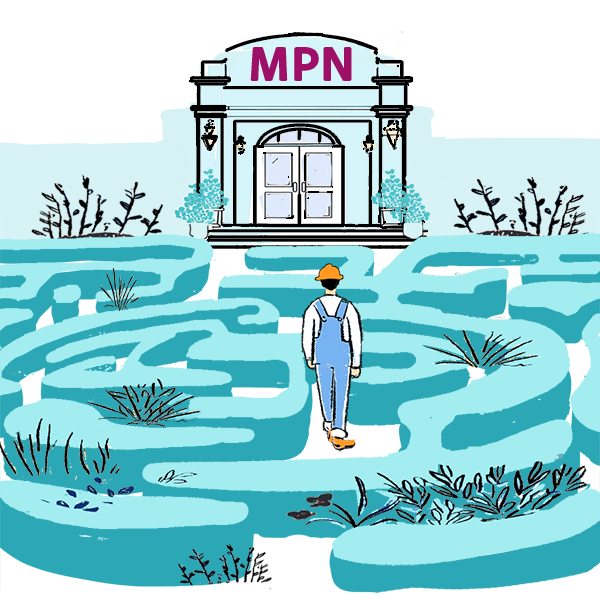Coventry: Fine Print Reveals MPN Mirage

Last week, we exposed the empty promise of Medical Provider Networks (MPNs), as evidenced by damning emails between a California doctor and Coventry. In one of its emails, Coventry admits that it cannot offer the doctor inclusion in any “specific carrier’s MPN,” because insurers and self-insured employers “customize their MPNs.”
Today, we look at the dirty details of this Preferred Provider Organization (PPO)’s pitch to take a cut of a doctor’s reimbursements in exchange for MPN membership. A little due diligence is all it takes to determine whether signing a PPO contract will benefit your practice.
More importantly, Coventry’s instructions to the doctor highlight the opacity of the MPN system, proving that MPNs do not exist to help deliver care to injured workers. MPNs only give organizations like Coventry leverage (and a smokescreen in this case) when pushing providers into unwarranted reimbursement discounts.
Coventry’s Mythical MPNs
When Coventry asked the doctor to sign a new discount agreement, the doctor had a reasonable question: why should I?
Specifically, daisyBill advised the doctor to ask the two questions every doctor should ask before signing a discount reimbursement contract:
- In exchange for allowing Coventry to discount my reimbursements, which specific insurer or employer MPNs will I be included in?
- Will Coventry lease/sell/transfer the discounted reimbursement rates with other entities, which will also discount my reimbursements?
The premise of a PPO contract is that a doctor gets membership in MPNs, and becomes eligible to treat injured workers in exchange for sacrificing revenue to the PPO. Except when this doctor requested the names of specific MPNs of which the doctor would become a member, Coventry could not list any approved MPNs used by insurers or employers.
The two networks Coventry named in its email (First Health CompAmerica Select HCO and First Health CompAmerica Primary HCO) comprise 142 MPNs. All 142 of these Coventry MPNs are listed as either revoked, terminated, or withdrawn by the Division of Workers’ Compensation (DWC).
Coventry Fine Print Exposes California MPN Hoax
Nevertheless, Coventry’s email acknowledges that even with membership in Coventry MPNs, “you still may not be part of a specific carrier’s MPN.” This acknowledgment is the dirty detail: Sacrificing revenue to a PPO does not necessarily mean inclusion in any insurer or employer MPN.
Coventry’s email advises that if the doctor agrees to the reimbursement discount, the doctor remains responsible for determining whether a Coventry MPN applies to a given injured employee and whether the doctor is eligible to treat, if an MPN is applicable.
Coventry is not unique in this regard. Signing any PPO contract means that to receive payment, the doctor remains responsible for confirming their own membership in any applicable MPN before treating an injured worker.
So how exactly should the doctor verify whether a Coventry MPN applies?
Since California fails to provide doctors with a reliable way to determine which employers maintain MPNs (let alone a way to determine provider membership), Coventry instructs the doctor to undertake a costly administrative process to determine treatment eligibility.
Coventry “advises” that for each patient, the doctor should:
- Contact the employer of the injured worker
- Ask for the name of the employer’s carrier [insurer] and
- Ask if the carrier “considers you part of their specific MPN.”
The closer a doctor looks at Coventry’s “offer,” the uglier it gets. And Coventry is only able to convince doctors to sacrifice their revenue because California makes it virtually impossible for doctors to get the MPN information they need before rendering treatment.
In future articles, we’ll explain how doctors currently contracted with Coventry can say goodbye to this organization (and its fine print).
Make workers’ comp easy. Harness the power of daisyBill software, data, and expertise for faster, better workers’ comp billing. Request a demo below.
REQUEST DEMO
DaisyBill provides content as an insightful service to its readers and clients. It does not offer legal advice and cannot guarantee the accuracy or suitability of its content for a particular purpose.



.png)

